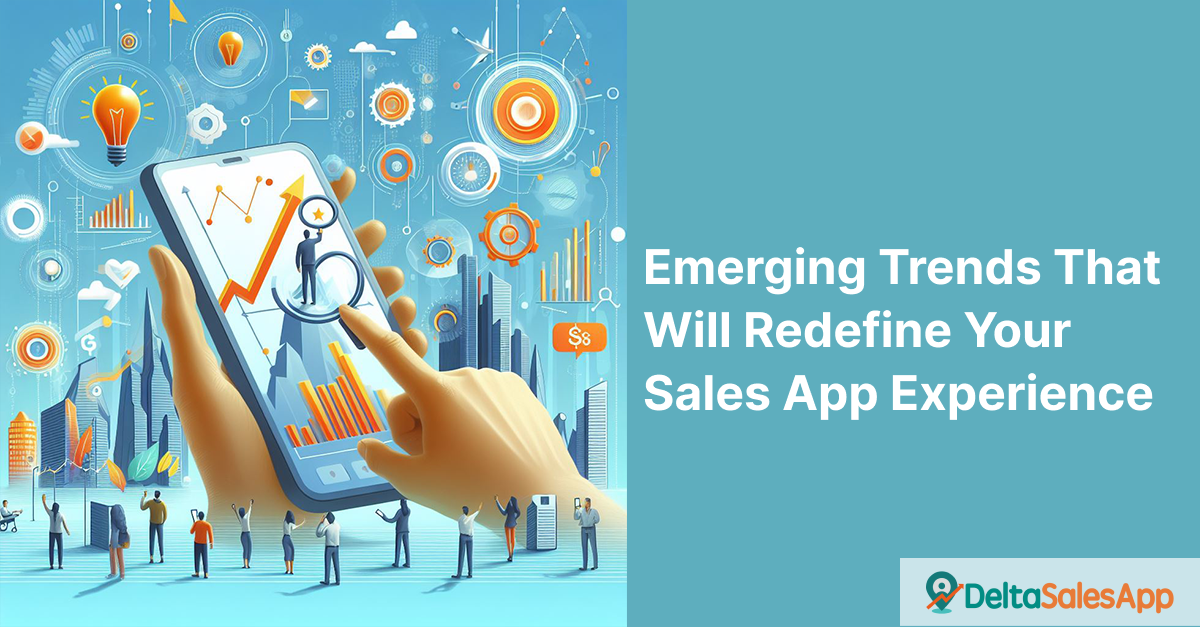Emerging Trends That Will Redefine Your Sales App Experience

The emergence of cutting-edge technologies in the sales domain has given rise to new methods of engaging with customers and leveraging data. Sales apps have evolved significantly to provide comprehensive solutions for businesses looking to optimize their sales processes. But what trends should you be keeping an eye on to ensure your sales app remains at the forefront of your industry?
In this post, we'll explore the top emerging trends that are poised to redefine the sales app experience.
1. The Rise of Artificial Intelligence and Machine Learning
Q: How are AI and ML being integrated into sales apps?
Sales apps are increasingly leveraging AI and ML to provide intelligent insights. From predictive analytics to real-time data processing, these technologies can help sales teams understand customer behavior, predict sales trends, and even automate mundane tasks, allowing salespeople to focus on strategic activities.
Q: What benefits does AI/ML integration bring for sales teams?
By harnessing AI and ML, sales teams can:
-
Personalize the sales process by providing tailored recommendations to customers.
-
Optimize lead scoring, ensuring that sales reps prioritize the most promising opportunities.
-
Detect patterns in customer interactions that may lead to a sale, ensuring sales reps can act on these opportunities quickly.
Q: Is there a specific example where AI/ML has made a significant impact on the sales process?
One of the most impactful uses of AI and ML in sales is in dynamic pricing, where algorithms can analyze market variables and customer behaviors to adjust prices in real time.
2. Enhanced CRM and Customer Engagement
Q: What changes are being made to CRM systems within sales apps?
CRMs are becoming more than just databases. They've evolved to become sophisticated platforms for understanding and engaging with customers. New functionalities include social listening tools, customer service modules, and even gamification features to enhance user engagement.
Q: How do these changes impact the customer relationship?
The deeper integration of CRM tools into sales apps offers sales teams a 360-degree view of their customer base. With this enhanced visibility, sales reps can deliver more targeted and meaningful interactions, thereby building stronger relationships with their clients.
3. Mobile-First and User-Centric Design
Q: Why is a mobile-first approach important in sales apps?
Sales reps are often on the move and need access to their tools from anywhere. A mobile-first design ensures that the sales app is optimized for performance across various devices, providing a seamless user experience regardless of the platform.
Q: How does user-centric design impact the effectiveness of a sales app?
User-centric design focuses on the needs and preferences of the sales team, creating a more intuitive and efficient tool. By involving end-users in the design process, sales apps can ensure high adoption rates and increased productivity.
4. Integration of Big Data for Advanced Analytics
Q: How is big data being integrated into sales apps?
The integration of big data allows sales apps to process and analyze vast amounts of information, providing actionable insights into customer purchasing patterns, competitor performance, and market trends.
Q: What benefits does big data offer to sales teams?
Sales teams can leverage big data to:
-
Identify new sales opportunities and market trends.
-
Segment customers based on their behavior and preferences.
-
Measure the effectiveness of their sales strategies with a high level of precision.
5. The Increasing Role of Virtual and Augmented Reality
Q: How are VR and AR being used in sales apps?
VR and AR are revolutionizing the sales process by providing immersive and interactive experiences. Product demonstrations, virtual showrooms, and guided tours can now be experienced through sales apps, offering a unique and engaging sales pitch.
Q: What advantages do VR and AR offer in the sales environment?
By incorporating VR and AR, sales teams can:
-
Shorten the sales cycle by providing customers with a realistic preview of products.
-
Increase product visibility and memorability through interactive experiences.
-
Differentiate their sales approach by leveraging cutting-edge technology.
Conclusion
The sales industry is on the precipice of a major digital transformation, and staying abreast of these trends is crucial to maintaining a competitive edge. By leveraging AI and ML, enhancing CRM and customer engagement, adopting a mobile-first and user-centric approach, integrating big data for advanced analytics, and exploring the possibilities of VR and AR, your sales app can provide an unparalleled user experience that drives effectiveness and amplifies results.
It’s clear that technology is not just a tool for sales success; it's becoming the very backbone of modern sales strategy. As you look to the future, consider how your sales app will harness these trends to create a more powerful, efficient, and rewarding sales experience for your team and your customers.
Remember, the Delta Sales App between a good sales app and a great one can be found in its adaptability to these new market currents. Keep evolving, keep enhancing, and keep delighting your users. The future of sales apps is brimming with potential, and it’s up to you how you'll steer this technological wave.









